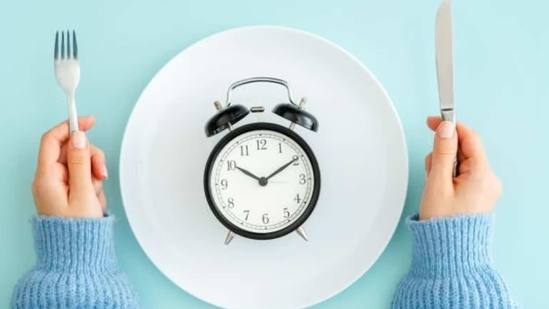A video by Realistic Fitness Coach Kols, an Instagram user who provides fitness advice and shares tips for weight loss, is currently drawing eyeballs for claiming that “YOU DONT HAVE TO STOP EATING YOUR FAVORITE FOODS TO SEE RESULTS (sic).” In the trending video, Kols claims, “You are never gonna be successful on your weight loss journey if you keep telling yourself that you can’t eat the foods that you love.”

She opined, “If you are a normal person like me, okay, and you just wanna start a weight loss journey, keto is not the solution for you, okay? Carnivore is not the solution for you. Vegan is not the solution for you. Why? Because these are diets that tell you that you cannot eat the foods that you love. If bacon is your favourite food and you love eating bacon and you’re like, ‘I’m gonna go vegan for weight loss’, babe, you are going to miss that bacon and you’re gonna think about it all the time and then eventually you’re just gonna give up being vegan.”
The Instagram influencer revealed how she loves an old-fashioned donut but decided to do the carnivore diet and as a result, could not have that old-fashioned donut. She recalled losing her mind and ended up eating 12 old-fashioned donuts when all she actually needed to do was eat in a caloric deficit.
Kols shared, “I did it. I lost 65 pounds eating a donut every single Saturday morning because you don’t have to cut out the foods that you love in order to be successful on your journey.”
What is a calorie deficit?
For the uninitiated, a calorie deficit occurs when we consume fewer calories than that our body needs to maintain its current weight. To create a calorie deficit, we can either eat fewer calories – by choosing lower-calorie foods or reducing portion sizes or increase our activity level – to burn more calories through exercise or daily movement.
It’s a fundamental principle for weight loss because, to lose weight, the body must burn more calories than it takes in. For example, if our body requires 2,000 calories per day to maintain its weight but we only consume 1,800 calories, we would create a 200-calorie deficit.
Over time, this deficit can lead to weight loss because our body begins to use stored fat for energy however, sustainable weight loss usually involves a moderate calorie deficit, ensuring that we still get adequate nutrients and energy. A calorie deficit is vital for weight loss but many people forget that weight loss is effective when we burn more calories than consumed.

Hence, keeping a track of our nutrient intake for the day can go a long way in losing fat but going into extreme calorie deficit can further aggravate the further health condition and breaks the body’s metabolism completely. Instead, we should focus on nutritious food.
Nutrition is not about counting calories; it is about micros and macros. For instance, vitamin deficiencies and metabolic or hormonal disorders like PCOD and thyroid cannot be managed if we blindly follow the concept of calorie counting.
Weight loss is driven by energy balance, calorie in vs calorie out and if we tend to eat more than we burn, it will lead to weight gain over time. Balancing energy expenditure and energy intake is the most critical factor for sustainable weight loss but there are various techniques for burning calories without dieting.
Health studies on not giving up your favourite food:
- An early study – Cognitive Restraint, Disinhibition, and Hunger: An Examination of the Three-Factor Eating Questionnaire in a Young Adult Women Sample – published in International Journal of Eating Disorders in the year 1991, highlighted how strict cognitive restraint (a form of self-imposed restriction) often leads to disinhibition, or the eventual breakdown of dietary control, as a result of frustration from deprivation.
- A study named ‘Dietary Restraint and Negative Affect as Predictors of Food Intake in Obese and Non-obese Individuals’, published in the Journal of Abnormal Psychology in 2001, examined the psychological effects of restrictive diets and demonstrated that food restriction often causes negative emotions that contribute to increased food intake and decreased diet adherence over time.
- A study – Flexible vs. Rigid Dieting Strategies: Relationship with the Dieting and Binge Eating Behaviors in Nonobese Women – published in Appetite in 2002, found that rigid dieting, including strict avoidance of favourite foods, was associated with higher binge eating rates and frustration, whereas flexible dieting that allowed occasional treats was more sustainable. Apart from this, other studies published in the Appetite journal indicate that when people restrict themselves from the foods that they enjoy, can end up with an intensified desire for those foods, sometimes referred to as the “forbidden food effect.” This can increase cravings, making it harder to resist the food over time and leading to eventual binge eating when self-control wanes.
- According to a 2006 study – Restrained Eating and Food Cravings – published in Appetite, restrained eaters experience increased cravings and dietary restrictions amplify the desire for “forbidden foods,” leading to frustration and potential diet failure. Other researchers have identified that strict dieting can foster an “all or nothing” mindset, that result in individuals feeling like they have failed their diet if they indulge in even a small treat. This mindset, as shown in studies from The Journal of Behavioral Medicine, can push people to give up entirely after a minor slip-up, often resulting in a complete return to previous eating patterns.
- A 2014 study – Effects of Dieting and Non-Dieting Interventions: A Review of Behavioral Mechanisms and Psychological Effects – published in the Journal of Obesity, covered the negative effects of restrictive diets, including frustration and subsequent “yo-yo” dieting patterns and suggested more balanced approaches for long-term adherence. Other studies in the Obesity Reviews journal have shown that flexible dieting, which includes occasional enjoyment of favourite foods, may lead to better psychological well-being, fewer episodes of overeating and improved weight management. The reason is that this approach encourages balance, allowing for dietary satisfaction without the sense of deprivation, which may prevent the frustration that leads to diet abandonment.
- A study – Self-Compassion Promotes Healthy Eating – published in Health Psychology in the year 2015, investigated the role of self-compassion in dieting and found that those who permitted themselves occasional indulgences (rather than strict restriction) reported reduced frustration and improved diet adherence. According to another study in Health Psychology, self-compassion — allowing oneself occasional indulgences — may promote better long-term adherence to healthy eating by reducing the guilt and frustration that often accompany restrictive dieting. This is because when people are more flexible with their eating and allow occasional treats, they are more likely to stick to balanced, sustainable diets.

As for dietary restraint and emotional eating, researches from The American Journal of Clinical Nutrition highlight how diets that restrict favourite foods can increase stress and negative emotions, leading to emotional eating. This behaviour often leads to a rebound effect where individuals give up on dieting and revert to previous eating habits to satisfy emotional needs.
Disclaimer: This article is for informational purposes only and not a substitute for professional medical advice. Always seek the advice of your doctor with any questions about a medical condition.











